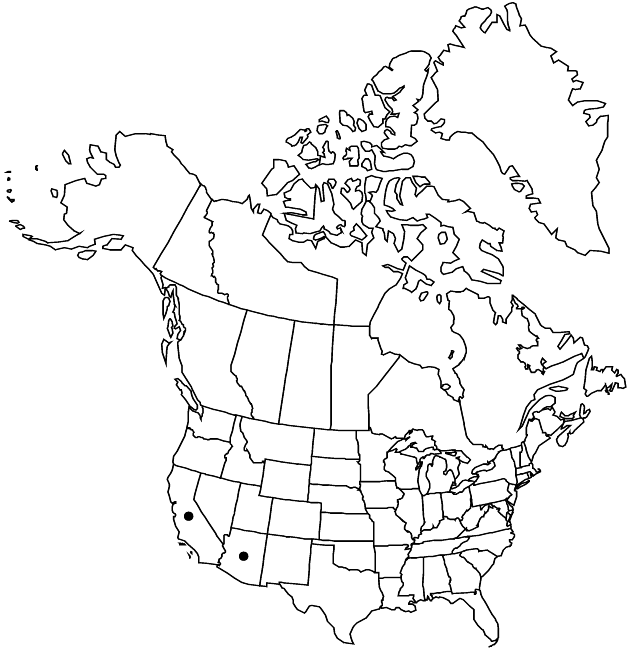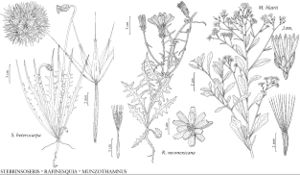Stebbinsoseris heterocarpa
Amer. J. Bot. 78: 1024. 1991.
Peduncles 5–60 cm. Involucres 6–30 mm. Florets 10–125; corollas yellow or white. Cypselae gray, straw-colored, brown, or violet (dark purplish in southwest California), narrowly truncate-fusiform to columnar, 4.5–12 mm, each filled by embryo or distal 0.5–3 mm vacant and more slender than proximal part, apices slightly widened at bases of pappi; pappi 7–19 mm, scale bodies 4–11 mm, faces usually glabrous, rarely villous, aristae 3–8 mm. 2n = 36.
Phenology: Flowering Apr–Jun.
Habitat: Clay, gravelly, or rocky soils, open flats and hillsides, grasslands, oak woodlands, chaparral, coastal scrub, desert (rarely), roadsides
Elevation: 0–1000 m
Distribution

Ariz., Calif., Mexico (Baja California).
Discussion
Stebbinsoseris heterocarpa is widespread in cismontane California and disjunct to Gila and Yavapai counties, Arizona. Variation in enzymatic restriction sites in its chloroplast DNA and nuclear rDNA (R. S. Wallace and R. K. Jansen 1995) indicates that S. heterocarpa has arisen independently three or more times from hybrids of Microseris douglasii × Uropappus lindleyi. Reflecting this multiple origin, the species is more variable in pappi and cypsela size, color, and shape than S. decipiens, from which it is largely allopatric. Because M. douglasii subsp. tenella and M. bigelovii intergrade in some coastal areas, forms of S. heterocarpa having such hybrids as their maternal parent would be difficult to distinguish from S. decipiens (K. L. Chambers 1955; U. Lohwasser and F. R. Blattner 2004).
Selected References
None.
